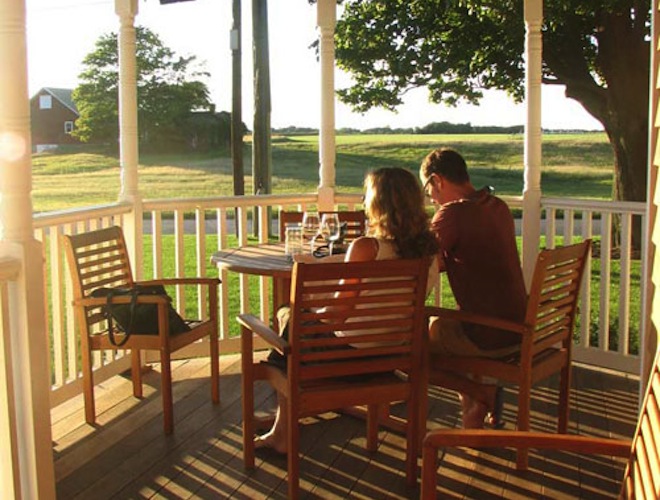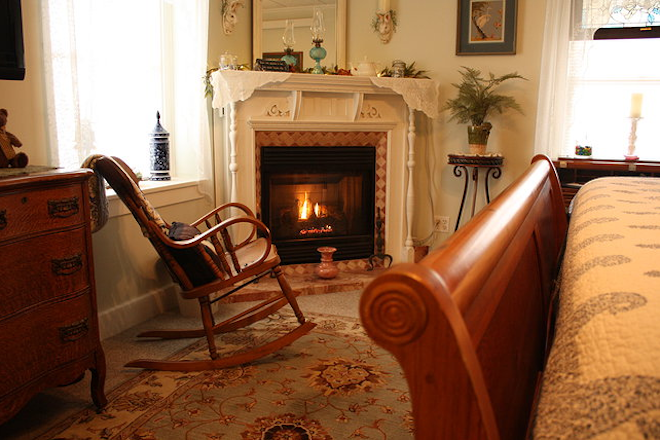Avoid These Common Mistakes First-Time Innkeepers Make

First-time innkeepers often target an audience that is too broad.
Owning and operating an inn is an exciting step for any person. For some, it’s a life calling, but it can also be a lifetime undertaking.
Whether you’re just in the planning phase or already opening your doors, avoid these common first-time mistakes.
1. Setting too broad of a target market
When asked to whom their inn or B&B caters, some owners will say ‘everyone.’ This might feel like a great strategy, but really you’re just diluting your inn’s customer base.
Start narrowing your target market from the beginning. (tweet this)
When you can picture exactly who you’re aiming to please, it will be much easier to please them. Think about special interests like historical or natural attractions in your town. What kinds of people would these appeal to? Describe a demographic that you not only have fun catering to, but will also be attracted to your inn’s existing features.
Define factors like age, home country/region, marital status and income. Then list psychographic factors like spending habits, goals, and attitudes.
Also think about what makes people choose B&B’s and small inns over larger hotels. Accentuate those feature of your business.
The better you define your ideal customer, the more you’ll be able to reach your ideal level of business.
2. Rushing the business plan
Detailed, formal business plans are not just for major hotels. Any inn or B&B aiming for success should invest serious effort into a written strategy.
Set goals, write a professional-level report, and keep revising your plan on an annual basis.
Try using the popular S.M.A.R.T framework when setting your goals. These are:
Specific
Measurable
Attainable
Realistic
Timely
Don’t just set a vague action plan like ‘increasing clientele and reducing expenses.’ Write down how much you want to increase your customer base using a specific percentage or set figure. Do the same for your budget cuts. This seems a bit tedious, but it pays off.
Also remember to be professional with your regular bookkeeping. Don’t rely on memory or your own personal system for important financial records. Take notes, use accounting software, and keep your files in an organized digital or physical location.
If you ever need to work with another investor, community planner or other third party, having a professional business plan can save you a world of trouble. Write your plan like it’s intended for an outside audience.
3. Operating without policies
Don’t assume your policies will take shape as you run the business. Set clear rules for guests and employees from the beginning. This way, you can avoid misunderstandings and maintain a positive, respectful atmosphere.
Make sure your policies are visible to anyone they apply to. Try posting them on your website and throughout employee areas.
Some questions you may ask when setting policies:
- Do you offer refunds?
- Are pets allowed?
- What is your attitude toward noise?
- Are there any safety or theft hazards in your area that guests should be warned of?
Keep your wording clear but friendly. You want to let people know your business is taken seriously, but you also want guests to feel comfortable and at home.
4. Failing to delegate

Delegate tasks you aren’t passionate about. Maybe it’s cooking or guided fishing trips.
It can be tempting for first-time inn owners to try to take charge of everything. This can mean being your inn’s front-desk person, marketer, accountant, and often the head chef!
Don’t fall into the entrepreneur’s common trap of failing to delegate. (tweet this) The skills and tasks required to run an inn effectively are diverse. Identify people you can rely on, and make room for paid help when planning your budget.
Remember that good delegation also means giving yourself time off. Like any other employee, you will need vacation time to recharge and maintain your personal relationships. Consider hiring an inn-sitter to take over while you make your own getaway!
5. Limiting the inn’s potential
Most successful inns and B&B’s use value-added features. They don’t just aim to fill guest’s expectations for basic accommodation. They make sure their product stands out among the competitors.
Living up to your inn’s full potential means thinking creatively. How can you go beyond the standard inn model to really make the most of your amenities?
You can start with simple value-added methods like offering personal, friendly advice on the local community. You may also make the extra effort to create inviting common areas and encourage guests to use an outdoor space. Some inns will also host special game nights or live music to add to their guests’ experience.
Make a list of your best resources, and start using your inn to its greatest potential!
What lessons have you learned with your B&B? Share your experiences in the comments.
Photos by and Westview B&B
Free Hotel Website Checklist
5 Essential tips for using your website to book more guests! Plus, a Free email course, Winning Web Strategies For Innkeepers.